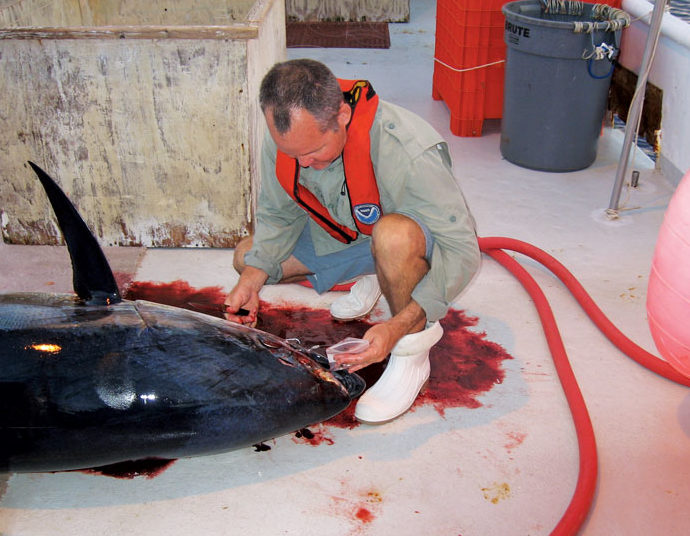
Thanks to honest input from career marine scientists in the Florida Keys, namely the four below and Limnologist Derke Snodgrass, readers have learned about this marine-based career in the past three issues. Here are concluding thoughts.
Q: What satisfaction/benefits come from working in marine science?
Brooke Denkert Black, M.S.: All science is cumulative. Therefore, every project, every experiment, every publication advances the field. Marine science, especially given the rate of climate change and sea level, is progressive. And the field constantly responds with innovative techniques and tools. It’s hard to get bored when you’re continually adding to or modifying the knowledge in marine science.
Dr. Hanna Koch, Ph.D.: Other than feeling fulfilled from knowing my research will have a direct and positive impact, my favorite aspect of marine science is being so closely connected to the marine environment itself. We spend so much time in front of screens that I cherish the opportunity to disconnect from devices long enough to fully appreciate what it means to be out on the water, to SCUBA dive and carry out scientific research underwater, and for a moment, to be integrated with that environment in such a way that we don’t typically experience above water.
Experiences of Marine Science Experts: Third in a Four-Part Series
Robert Nowicki, Ph.D.: As a scientist, I have seen and done things most people will never get to see or do. I have lived in foreign countries, done research in the Red Sea, Indian Ocean, Atlantic Ocean and Caribbean Sea, worked with sharks, sea snakes, dolphins, sea turtles and more, gone diving, seen sunsets, and met incredibly interesting people — all while being paid. People come to you for interviews, and their listeners/readers/viewers spend their free time learning about what you do for a living. I can’t think of too many careers that let you do so many cool things and pay you for it. Remembering these things helps keep me going when the boat breaks down or I’m up at 3 a.m. trying to finish a grant proposal! But, what keeps me engaged is the knowledge I can make a real, positive impact on the natural world.
Heather Page, Ph.D.: Marine biology/sciences can be a difficult field but it is so satisfying to know you are helping leave the world a better place. I also feel incredible satisfaction when I figure out a method I’ve been struggling with for weeks, have a paper accepted for publication, establish new collaborations at scientific meetings, interact with the public, and see our college interns grow as scientists. Additional benefits of this field include variety in the day-to-day work, opportunities to be outside in or on the water, and traveling for research and conferences.
Experiences of Marine Science Experts: Second in a Four-Part Series
Q: I wish I would have known…
Nowicki: To pay more attention in math and writing class! Scientists are professional analysts and writers, but in many other ways, being a research scientist is like being an entrepreneur — you have to learn a lot of different skills because you often need to do a variety of things. For example, to do my job, I have had to learn advanced statistics, good writing practices, how to drive, maintain and repair boats; how to design experiments, how to maintain aquariums, how to budget and write budget reports, how to apply for grants, how to give public research presentations, how to edit videos and images with computer software, how to program, how to mentor, and more — in addition to all the biology! The best single skill you can learn in preparation for a career in science is how to teach yourself things without a formal classroom setting. The best thing is, if you learn that skill, it serves you very well both in science and in life.





